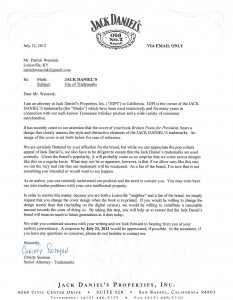On that note, apologies to my loyal readers whom I’ve forsaken for quite some time now. I’ve recently transitioned to another firm which always entails a fair bit of work. At least I can rest assured that now can rest assured that no one will sue me for apologizing, as Ontario passed into law last year the Apology Act, 2009.
Laws governing apologies are not the usual subject matter of this blog, but I thought it might be of some interest.
I’ve always inclined to apologize, not with any intent whatsoever of admitting fault, liability or wrongdoing, but rather as a question of polite and well-mannered. However, before the passage of this act, saying your sorry could lead to the very unfortunate result of being construed as the former. Even apart from the legal ramifications, I recall a few years ago some advice one of my colleagues (who I respected very much gave me), which was never to apologize in the course of negotiations, for anything, as it could be interpreted as a sign of weakness.
While I think the introduction of this act is a good thing, it seems to me to be rather unfortunate that the law and society generally have led to a situation where a statute must be enacted so that people can apologize to each other without fear of recrimination. As a lawyer, I understand why professionals should be advised not to apologize, but as a human being, I find it very unfortunate (and non-intuitive) that the law has evolved to equate (or at least run the risk of equating) an expression of sorrow with an admission of liability. If a patient dies on the operating table due to no fault of the doctor performing the surgery, it would nonetheless seem perfectly human to me that the doctor would feel some sense of remorse or sorrow. In fact I’d probably find it somewhat disturbing if he or she didn’t. Expressing that sorrow would, to me, also seem to be a natural extension of that – not because of a desire to admit fault or liability, but because it is a natural extension for those that feel sorrow for the loss of a life and have some reasonable measure of empathy or compassion.
In any event, that’s just my $0.02 on the matter. It’s also perhaps worth mentioning that the Act doesn’t quite give you carte blanche to apologize – there are a number of exceptions, such as traffic violations or testifying at civil proceedings (PDF).
Sorry!

